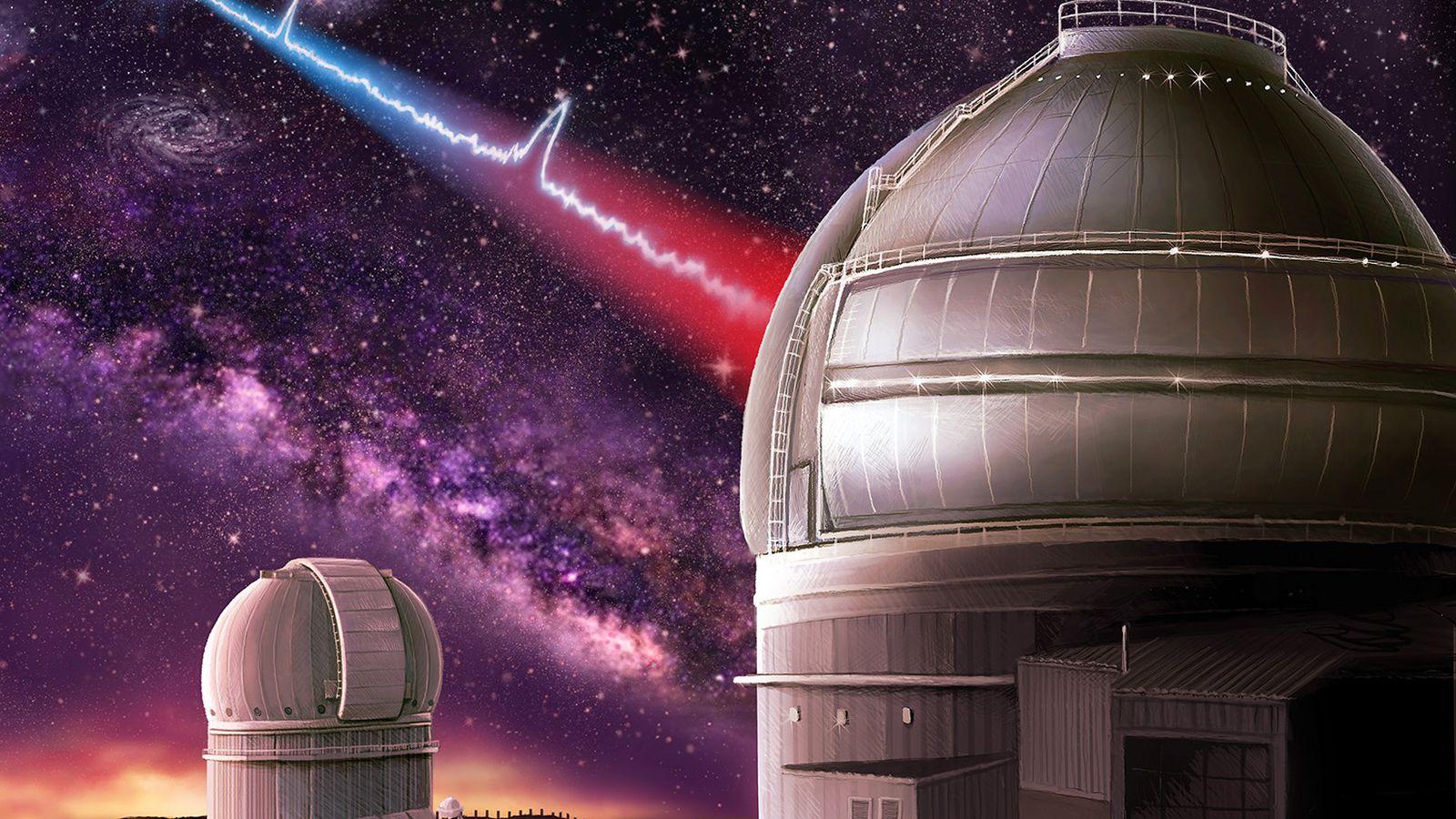Breakthrough Listen releases data so that everyone can help search for signals from extraterrestrial civilizations.
Alien life has been actively sought for decades. For example, there is a continuous search for radio signals from aliens. But as yet without result. That is why Breakthrough Listen likes to get help from the general public. Because if everyone helps with the search, the chance is much greater that someone will notice a promising signal.

2 Petabytes
Breakthrough Listen now comes with big news: they release almost 2 petabytes of telescope data . It means that anyone who wants to can help to dig through this huge mountain of data in search of that one striking signal. Count on it that it will be quite a job. Because just for your own imaging: one petabyte of information corresponds to about a 1.8 km high tower of stacked CD-ROM discs without a box.
Data
The released data comes from different telescopes that explored a radio spectrum between 1 and 12 gigahertz (GHz). About half of the data comes from the Parkes Telescope located in the Australian state of New South Wales. Because of the perfect location of the telescope, it can scan the entire galactic disk and the galactic center like no other. The rest of the data was collected by one of the largest and most sensitive telescopes on earth: the Green Bank Telescope.

Audience
It is not the first time that Breakthrough Listen is asking for help from the general public. Last year they also released a petabyte of radio and optical telescope data. But now the amount that the public can spar about has doubled. “It is our hope that this information will reveal something new and interesting,” says researcher Matt Lebofsky. “Whether it is another intelligent life form in the universe, or an undiscovered natural astronomical phenomenon.” According to Breakthrough Listen, it is very important that everyone cooperates in answering that one pressing question, whether we are alone in the universe. “Throughout human history, we only had a limited amount of data to look for extraterrestrial life,” says Breakthrough Listen Yuri Milner’s founder. “That’s why we could only speculate. Now that we have a lot of data, we can really research this topic really well. And by making this data available to the general public, everyone can help answer that one pressing question.”
“BY MAKING DATA AVAILABLE TO THE GENERAL PUBLIC, EVERYONE CAN HELP ANSWER THAT PRESSING QUESTION”
Nearby stars
Researchers themselves have already started the rush hour. They studied radio signals from twenty nearby stars. These stars are so aligned with the Earth that an advanced civilization around those stars can see the Earth pass as it moves past the sun. “This is a unique geometry,” says researcher Sofia Sheikh, who took care of the data. “It’s the way we discovered other exoplanets. So it makes sense that this might also be the way another intelligent civilization finds planets. The region in question has been discussed before, but there has never been a specific search. ” Unfortunately, the researchers found nothing exciting. “We have not found any aliens,” Sheikh says. However, researchers are increasingly delimiting the places in the universe where advanced, extraterrestrial civilizations may occur. “The results are a new piece of the puzzle that someone else can build on.”
So the search for extraterrestrial life continues steadily. And you can help! Because perhaps you will find somewhere between those 2 petabytes of data the proof that aliens exist. But whether we also want to make contact immediately … Not everyone agrees. Radio astronomer and astroparticle physicist Heino Falcke told Techzle not be very enthusiastic about the plan. “(I think it is not a good idea to announce that we are there with a lot of energy in the Melkweg. After all, you never know what you’ll come across (…)”, he said at the time. “We know from history that a clash between two civilizations always comes to the advantage of civilization with larger resources and better technologies. In this case that would be the civilization that the other can visit.” But we are not that far yet. First we had to dig through the mountain of data. Moreover, research into the atmospheres of exoplanets is also continuing . Because with the help of the next generation of telescopes we can go in search of biomarkers in those atmospheres: substances that could only have ended up in that atmosphere through biological processes on the planet.